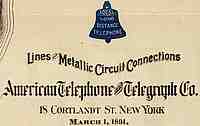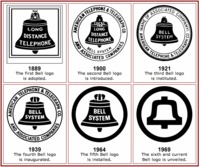pete_c
Guru
by Karl Bode
Friday Jul 15 2016 10:20 EDT
The evolution from DSL and copper networks to fiber and wireless (especially 5G) is in some ways an inevitability, and may in some areas provide dramatic benefits to consumers. But we've long noted how some telcos are taking advantage of the idea to gut consumer protections and ignore upgrade obligations for networks they received billions in subsidies to build, driving these unwanted DSL customers to wireless service that may have them paying more money than ever before for broadband service.
 We've discussed at length how AT&T's "IP transition" is being
We've discussed at length how AT&T's "IP transition" is being
framed as some sort of evolutionary transition toward a "glorious all-IP future," but is really largely about AT&T gutting regulations in order to hang up on POTS (plain old telephone) and DSL users they simply don't want to upgrade.
The name of the game is terminating these unwanted users and pushing them toward significantly more profitable (read: capped and metered) LTE wireless service. Whether this means higher prices for consumers -- or the inability for competing CLECs to access last mile connections -- isn't of much concern to incumbents.
To make this dream a reality, AT&T and Verizon have been going state by state, trying to convince local governments that if they kill off regulations requiring they keep providing POTS and DSL, those communities will somehow enter telecom infrastructure investment Utopia, where they're suddenly awash in improved technology, networks and opportunity.
AT&T's even gone so far as to pay a slew of people (like Steve Forbes and Rick Boucher) to pen editorials circulating in national newspapers claiming again that if we allow AT&T to kill off DSL and POTS lines, we'll enter some type of golden era of telecom investment. Verizon similarly has used natural disasters like Hurricane Sandy as an opportunity to hang up on DSL -- then telling users that expensive wireless is "good enough."
The problem with these transitions is that AT&T and Verizon are going to leave these markets with less fixed-line broadband competition than ever before. As a result, potentially tens of millions of DSL users will ultimately face the choice of either very expensive wireless (over which Netflix streaming is impractical), or a cable operator emboldened by a now total lack of any price competition whatsoever (making prices higher and support worse than ever before). Assuming they can get a wireless signal in the home, or even have access to a cable competitor.
The "IP transition" requires serious public discussion, and it's possibly the most important shift in telecom in thirty years.
As such, the FCC a few years ago voted to approved a few trials that took a closer look at how the telcos' retirement of outdated legacy networks would actually impact consumers and businesses. And yesterday the FCC also voted on rules (pdf) that streamline the telco ability to request the retirement of copper assets, provided they provide some kind of equivalent (wired or wireless), ensure 911 services still work, and ensure they're not dramatically harming legacy services like alarm systems that rely on older DSL or POTS technology.

The rules try to provide some guidance for the death of copper, though it's likely you may still find yourself in a position where your inexpensive DSL line is simply replaced with significantly more expensive wireless broadband. Still, groups like Public Knowledge applauded the FCC's new policy plan.
"Today’s FCC Order does more than protect the tens of millions of businesses and local governments, the thousands of public safety systems, and the more than 50 million Americans still using the legacy copper phone network," Public Knowledge Senior VP Harold Feld said. "Today’s action ensures that as telephone companies spend billions of dollars to upgrade our national communications network, it will genuinely be an upgrade for all Americans, not an upgrade for some and a downgrade for others."
AT&T and Verizon have long believed that 5G can be a simple replacement for DSL, and most early implementations of 5G (when it drops 2020 or later) will be "fixed" (an antenna affixed to your home). But with a lack of competition in these markets it's still likely that users that enjoyed unlimited, relatively inexpensive DSL will have those options stripped and replaced, either by more expensive wireless, or a cable provider that's, again, facing less competitive incentive than ever to compete on service price or quality.
So while the FCC's rules do help provide some guide rails for the "IP transition," protecting consumers from high prices (or frankly even acknowledging that high prices exist) hasn't historically been the FCC's forte.
Those interested can find the FCC's full transition order here (pdf).
Friday Jul 15 2016 10:20 EDT
The evolution from DSL and copper networks to fiber and wireless (especially 5G) is in some ways an inevitability, and may in some areas provide dramatic benefits to consumers. But we've long noted how some telcos are taking advantage of the idea to gut consumer protections and ignore upgrade obligations for networks they received billions in subsidies to build, driving these unwanted DSL customers to wireless service that may have them paying more money than ever before for broadband service.

framed as some sort of evolutionary transition toward a "glorious all-IP future," but is really largely about AT&T gutting regulations in order to hang up on POTS (plain old telephone) and DSL users they simply don't want to upgrade.
The name of the game is terminating these unwanted users and pushing them toward significantly more profitable (read: capped and metered) LTE wireless service. Whether this means higher prices for consumers -- or the inability for competing CLECs to access last mile connections -- isn't of much concern to incumbents.
To make this dream a reality, AT&T and Verizon have been going state by state, trying to convince local governments that if they kill off regulations requiring they keep providing POTS and DSL, those communities will somehow enter telecom infrastructure investment Utopia, where they're suddenly awash in improved technology, networks and opportunity.
AT&T's even gone so far as to pay a slew of people (like Steve Forbes and Rick Boucher) to pen editorials circulating in national newspapers claiming again that if we allow AT&T to kill off DSL and POTS lines, we'll enter some type of golden era of telecom investment. Verizon similarly has used natural disasters like Hurricane Sandy as an opportunity to hang up on DSL -- then telling users that expensive wireless is "good enough."
The problem with these transitions is that AT&T and Verizon are going to leave these markets with less fixed-line broadband competition than ever before. As a result, potentially tens of millions of DSL users will ultimately face the choice of either very expensive wireless (over which Netflix streaming is impractical), or a cable operator emboldened by a now total lack of any price competition whatsoever (making prices higher and support worse than ever before). Assuming they can get a wireless signal in the home, or even have access to a cable competitor.
The "IP transition" requires serious public discussion, and it's possibly the most important shift in telecom in thirty years.
As such, the FCC a few years ago voted to approved a few trials that took a closer look at how the telcos' retirement of outdated legacy networks would actually impact consumers and businesses. And yesterday the FCC also voted on rules (pdf) that streamline the telco ability to request the retirement of copper assets, provided they provide some kind of equivalent (wired or wireless), ensure 911 services still work, and ensure they're not dramatically harming legacy services like alarm systems that rely on older DSL or POTS technology.

The rules try to provide some guidance for the death of copper, though it's likely you may still find yourself in a position where your inexpensive DSL line is simply replaced with significantly more expensive wireless broadband. Still, groups like Public Knowledge applauded the FCC's new policy plan.
"Today’s FCC Order does more than protect the tens of millions of businesses and local governments, the thousands of public safety systems, and the more than 50 million Americans still using the legacy copper phone network," Public Knowledge Senior VP Harold Feld said. "Today’s action ensures that as telephone companies spend billions of dollars to upgrade our national communications network, it will genuinely be an upgrade for all Americans, not an upgrade for some and a downgrade for others."
AT&T and Verizon have long believed that 5G can be a simple replacement for DSL, and most early implementations of 5G (when it drops 2020 or later) will be "fixed" (an antenna affixed to your home). But with a lack of competition in these markets it's still likely that users that enjoyed unlimited, relatively inexpensive DSL will have those options stripped and replaced, either by more expensive wireless, or a cable provider that's, again, facing less competitive incentive than ever to compete on service price or quality.
So while the FCC's rules do help provide some guide rails for the "IP transition," protecting consumers from high prices (or frankly even acknowledging that high prices exist) hasn't historically been the FCC's forte.
Those interested can find the FCC's full transition order here (pdf).
